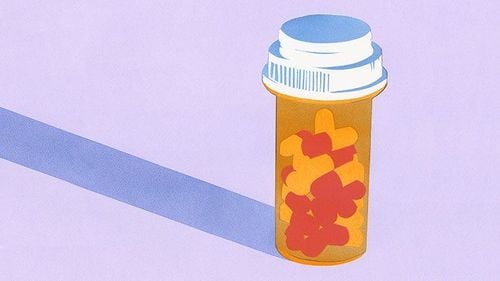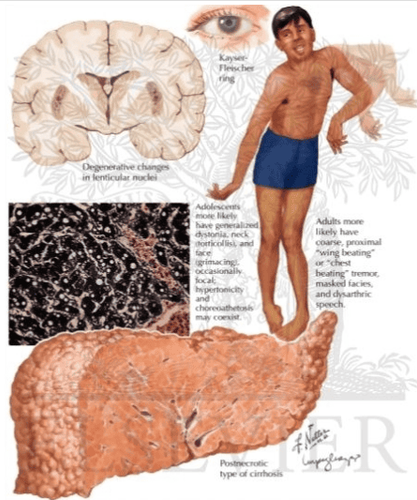This is an automatically translated article.
The article is professionally consulted by Master, Doctor Le Thi Minh Huong - Emergency Medicine Doctor - Department of Resuscitation - Emergency - Vinmec Nha Trang International General Hospital. The doctor has more than 06 years of experience in examining and treating internal diseases, emergency and emergency resuscitation.Huntington's chorea is one of the diseases that greatly affects the functional activities of people in terms of action, psychology as well as cognition.
1. What is Huntington's Chorea?
Huntington's chorea is an inherited disease caused by the degeneration of nerve cells in the brain.This is a condition in which the body experiences movement disorders and unpredictable movements. In addition, Huntington also leads to psychological or cognitive disorders of the patient.
2. Common Symptoms of Huntington's Chorea
Symptoms of Huntington's chorea usually appear between the ages of 30 and 40, sometimes with an earlier onset (teenage Huntington's disease).Symptoms of Huntington's chorea often include motor, psychological or cognitive disturbances and can present in varying degrees depending on the individual case. In the course of the disease, it can lead to prominent disorders and greatly affect functional activities.
2.1 Movement disorders The dyskinesia symptoms of Huntington's chorea include involuntary movements with impairments in voluntary movement.
Writhing movements or involuntary convulsions (chorea/chorea). Muscle problems such as muscle spasms (dystonic dystonia) or muscle stiffness. Eye movements are slower or irregular. Posture and balance problems. Difficulty speaking or swallowing. In particular, compared with involuntary movement, defects in voluntary movement will more affect the patient's daily activities as well as the patient's ability to work and communicate.
2.2 Psychological Disorders Depression is one of the most common psychological disorders of Huntington's chorea. Specific signs can be seen such as:
Easily angered, indifferent to everything around and often sad. Avoid crowded places. The body lacks energy, often sluggish, tired. Insomnia . Or have thoughts of suicide, of death. In addition, there are a number of other mental disorders that can be encountered including:
Obsessive-compulsive disorder Bipolar disorder Manic. 2.3 Cognitive disorders Huntington's chorea can cause a number of cognitive impairments such as:
Difficulty in organizing, concentrating and organizing work. There is a tendency to get stuck in a certain behavior or thought. Lack of flexibility. Reduced motivational control leads to impulsive, thoughtless actions. Decreased self-perception. The process of thinking and expressing thoughts is slow and difficult. Difficulty absorbing new information.

3. What causes Huntington's disease?
Huntington's chorea may be temporary or long-lasting. This condition can have many causes:Immune system diseases such as: Systemic lupus erythematosus. Infectious diseases. Hereditary diseases. AIDS . Certain medications, such as tranquilizers or levodopa. Endocrine or metabolic disturbances such as hypoglycemia. Pregnancy.
4. Diagnostic methods of Huntington's chorea
To diagnose Huntington's chorea, your doctor will first perform a physical exam, a neuropsychiatric exam, and a family history.Specifically, the diagnostic examination process includes the following steps:
Neurological examination: Ask some relevant questions and consider the patient's answers. Check for motor, sensory, and psychiatric symptoms. Neuropsychological testing. Mental assessment of the patient such as behavior, emotional state, coping skills,... Imaging tests to assess brain function such as MRI, CT scan,... Genetic testing and counseling Genetic predictive testing.
5. Treatment of Huntington's Chorea

5.1 Movement disorders Drugs indicated for the treatment of movement disorders include:
Tetrabenazine (Xenazine) to help inhibit chorea or involuntary seizures. Antipsychotics (such as Chlorpromazine and Haloperidol): Reduces chorea, but can have side effects that worsen muscle stiffness and dystonia. Other medications that help inhibit seizures include Levetiracetam, Amantadine, and Clonazepam (Klonopin). 5.2 Psychiatric Disorders Drugs indicated for the treatment of psychosis include:
Antidepressants (such as Citalopram, Fluoxetine, Sertraline): supportive treatment of obsessive-compulsive disorder. Antipsychotic drugs (such as Quetiapine, Risperidone, and Olanzapine): help inhibit violent outbursts, mood disorders. Mood stabilizers (such as Valproate, Carbamazepine, Lamotrigine): help prevent depression and mania. Besides medication, some other therapies that can be used for Huntington's chorea are:
Speech Therapy Physical Therapy Occupational Therapy Here's what you need to know about Huntington's chorea. If a patient shows one of the symptoms suspected of Huntington's chorea, they should see a doctor for examination and timely intervention to avoid the disease seriously affecting life and work. .
Please dial HOTLINE for more information or register for an appointment HERE. Download MyVinmec app to make appointments faster and to manage your bookings easily.














